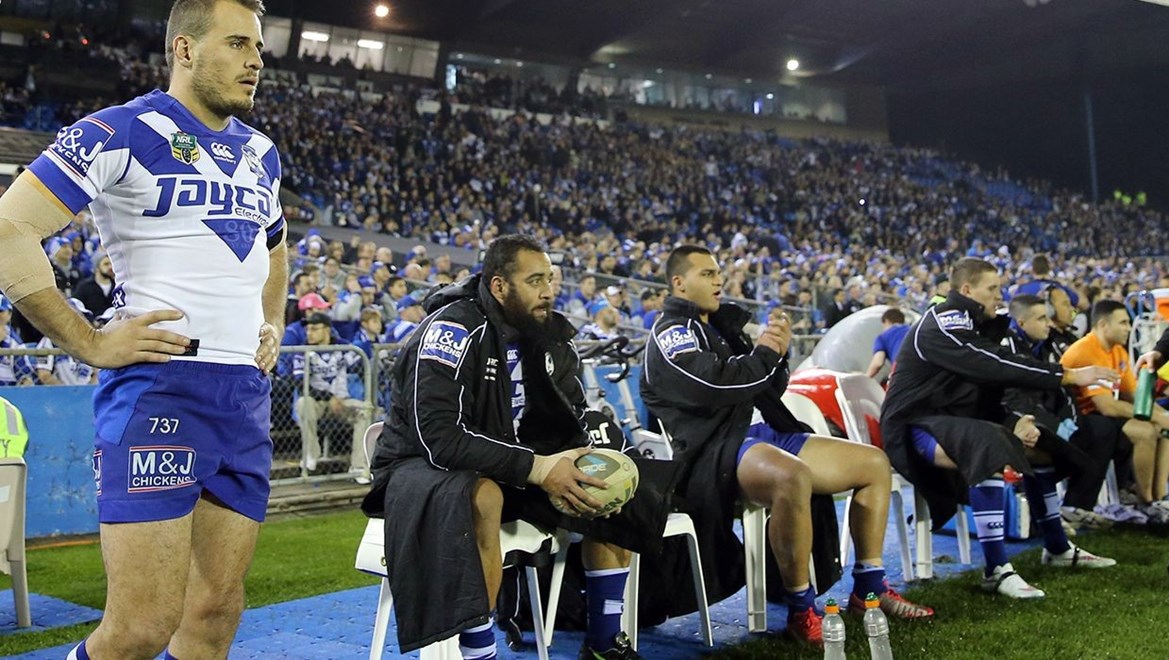

He's already the most dominant player in the game and Bulldogs prop James Graham is concerned that rule changes to be introduced into the NRL this season will make Johnathan Thurston next to impossible to contain.
Given his absence from the Indigenous All Stars team this week Graham won't have to worry about Thurston when he takes the field for the World All Stars on Saturday night but is already looking ahead to a season with fewer interchanges, shorter stoppages and a more stringent policing of the play-the-ball.
Unsure whether the changes will have a dramatic or minimal impact on the game, Graham said Thurston's recent dominance belies the notion that more space and time needs to be created for the playmakers to flourish
"Obviously they've done it for a reason, whether they are saying it's for player safety or they want to see more tries scored or I've even heard about wanting to allow the halves to have a greater impact on the game," said Graham in between sessions at the All Stars Youth Summit on Thursday.
"It's funny that people say that and Johnathan Thurston is the best player in the game.
"It's interesting what the people who have come up with it want they want to see and whether they get it.
"Are coaches going to make us train harder? Change our body shapes? I can't see coaches letting the defensive standards slip just because there are two less interchanges or you've got a certain amount of time to pack a scrum a take a dropout. I'm interested to see what it does.
"It could be a massive game-changer, it could be nothing."
As for how Bulldogs coach Des Hasler intends to combat any changes, Graham was cagey: "Let's just say he's made us aware of what we're about to encounter."
While big blokes such as Graham may fear an imbalance towards players at the smaller end of the spectrum it is a move that has been welcomed by Sharks hooker Michael Ennis.
Ennis, who will make his second All Stars appearance on Saturday night, fears that a generation of young halves may have already slipped through the cracks and that the interchange needs a further reduction to six per team per game to have the desired effect.
"I would have liked to have seen it go to six personally and then we would have seen a real difference," said Ennis.
"It would have encouraged the small guys to continue and I think that's a real area of concern for our game. We have lost a lot of the young halves coming through our game due to the size of some of the boys that come through now and the athletes in those teenage years.
"With the unlimited interchange or even up to 12 [interchanges] it allows the big guys to dominate the little guys and when you're a young kid coming through there are other things you start to find enjoyable on weekends.
"Now they will get that opportunity with the interchange coming down and if we can filter that through the school football as well we will really start to see those young, talented halves. The guys that I watched as a kid like Allan Langers and Geoff Tooveys coming through who provided such entertainment and were such great players back into the game."
A more stringent policing of the play-the-ball was announced by the NRL during the week but Ennis doesn't believe it will have any significant impact on the game other than to punish players in possession who fail to get boot to ball.
"I don't think it's actually going to benefit the game," said Ennis.
"I think it's an area people thought needed to be cleaned up with guys just rolling the football but I don't think it will actually have any impact on the game other than you'll lose momentum when a player gets pinged or not playing the ball properly.
"It's that something in the game that they think needed to be addressed we've just got to abide by it."
This article first appeared on NRL.com






